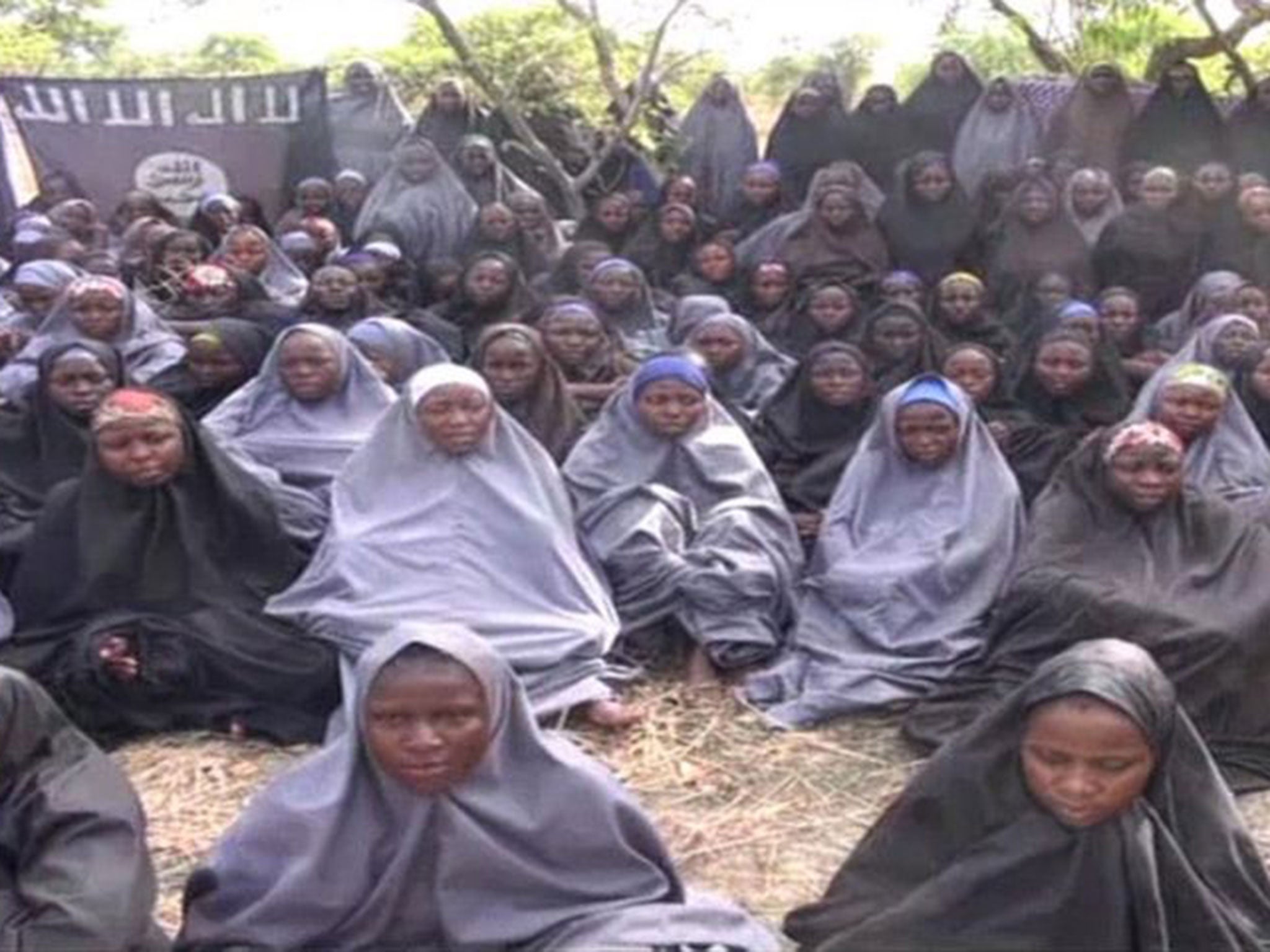Kidnapped Nigerian schoolgirls: Government 'ready to talk with Boko Haram'
The government's latest stance follows a wave of national and international criticism at its handling of the kidnappings
Your support helps us to tell the story
From reproductive rights to climate change to Big Tech, The Independent is on the ground when the story is developing. Whether it's investigating the financials of Elon Musk's pro-Trump PAC or producing our latest documentary, 'The A Word', which shines a light on the American women fighting for reproductive rights, we know how important it is to parse out the facts from the messaging.
At such a critical moment in US history, we need reporters on the ground. Your donation allows us to keep sending journalists to speak to both sides of the story.
The Independent is trusted by Americans across the entire political spectrum. And unlike many other quality news outlets, we choose not to lock Americans out of our reporting and analysis with paywalls. We believe quality journalism should be available to everyone, paid for by those who can afford it.
Your support makes all the difference.The Nigerian government is reportedly prepared to commence talks with the militant Islamist group Boko Haram, in a bid to agree the release of over 200 schoolgirls that were abducted nearly a month ago.
Nigeria had previously rejected an offer to negotiate with Boko Haram, but national and international pressure on the government, aimed at their allegedly slow response to the situation, appears to have relaxed their stance.
Special Duties Minister Tanimu Turaki made the suggestion to BBC News in response to a video released by Boko Haram’s leader on Monday, in which he claimed he would release the girls in exchange for jailed fighters.
The potential negotiations come after Mike Omeri, the director of the government's information agency, said late on Monday that the government will “use whatever kind of action” it takes to free the girls – not excluding a foreign-backed military operation.
“At the moment, because all options are open we are interacting with experts, military and intelligence experts from other parts of the world,” he said, adding: “So these are part of the options that are available to us and many more.”
The girls were snatched from a school in Borno state, in the north east of Nigeria, on 14 April. Almost a month after the kidnapping, Boko Haram released a video which they claimed showed the abducted girls.
Hussein Monguno, an official with a civic group called the Borno Yobe People's Forum, said representatives of the families of the missing girls had been invited to the Nigerian capital of Abuja to view the latest Boko Haram video.
At least one mother has so far identified her daughter in the footage posted on YouTube by her captors.
It is expected that if more families are able to identify their missing children in the footage, the government will take the next course of action, he told reporters by phone from Maiduguri, the capital of Borno.
Since the girls were kidnapped, a national campaign for their return has become global, with social media users harnessing #BringBackOurGirls in a bid to raise awareness and motivate governments to act.

Last week critics organized a mass protest in Abuja to press the government to do more to find the missing girls and to stop attacks in Nigeria by Boko Haram. The group has killed more than 1,500 people in 2014.
On Tuesday, President Goodluck Jonathan reacted by asking the National Assembly to extend for another six months the state of emergency in Borno and two other northeastern states. The emergency was imposed 14 May, 2013, and extended in December.
Britain and the US are now helping Nigeria’s rescue efforts, with the former sending security experts and counter terrorism methods, and the latter sharing commercial satellite imagery and manned intelligence, surveillance, and reconnaissance aircrafts.
Additional reporting by AP
Join our commenting forum
Join thought-provoking conversations, follow other Independent readers and see their replies
Comments